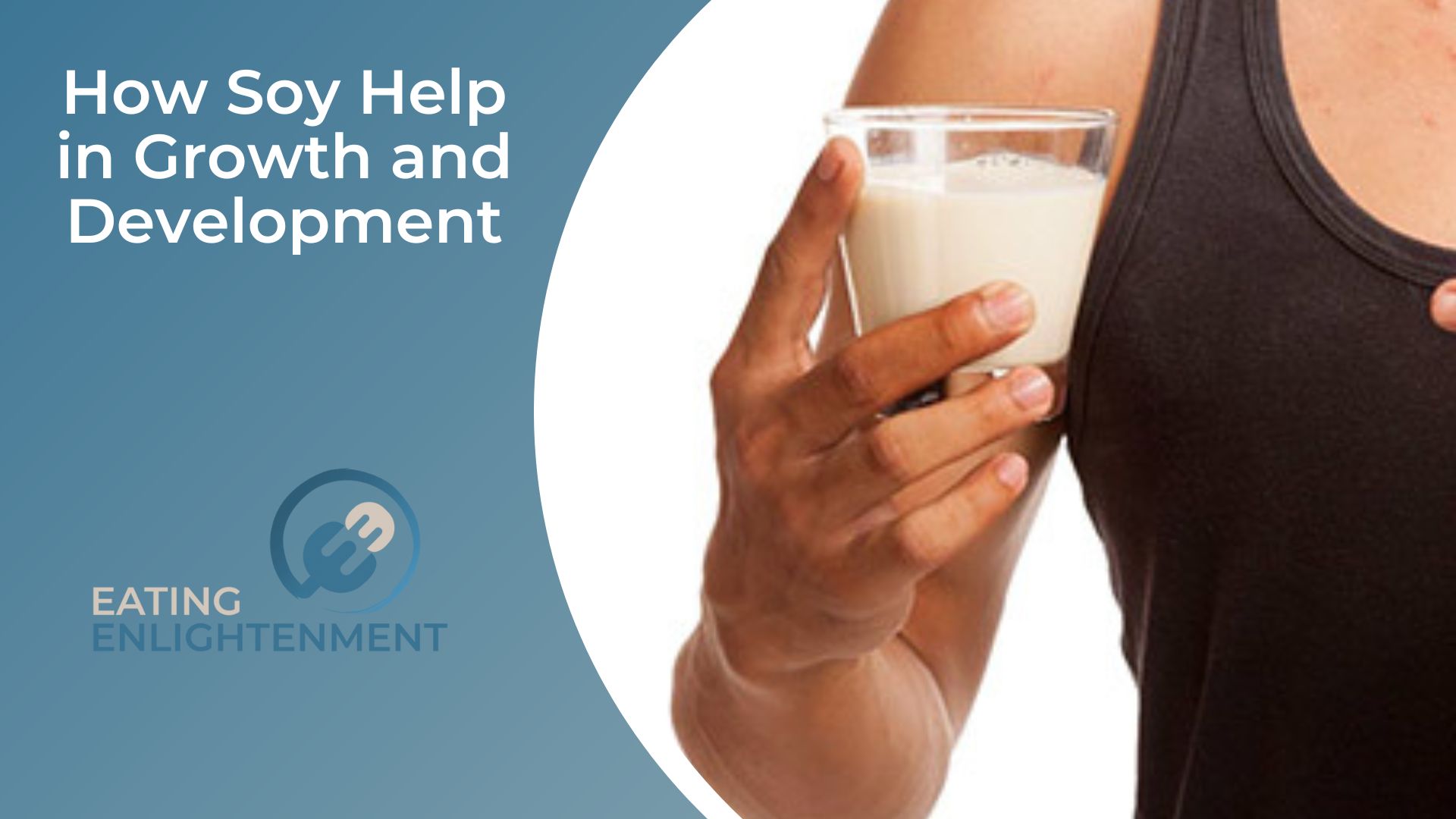Soy, a nutrient-dense food, offers several health advantages that can contribute to growth and development. The essential fatty acids, protein, potassium, folate, calcium, and other nutrients in soy have made it one of the most popular food choices in America, with more and more people thriving on soy foods like natto, miso, edamame, tofu, and tempeh. Epidemiological and clinical research on soy also supports the safety of these soy foods.
With increasing interest in vegan diets, non-animal protein sources, and plant-based eating patterns among U.S. citizens, the topic of soy and the way it can positively contribute to an individual’s diet has become quite relevant.
Here are five points that enumerate how soy can help in growth and development.
Soy Protein May Support Bone and Muscle Strength
Soy is a superior-quality protein among the few plant foods with all nine essential amino acids. One hundred grams of boiled soybeans contain 63% water, 172 calories, 8.4 grams carbs, 18.2 grams protein, 3 grams sugar, 9 grams fat, 6 grams fiber, 5.06 grams polyunsaturated fats, 1.98 grams monounsaturated fats and 1.3 grams saturated fats.
The main types of soy protein include conglycinin and glycinin, making up around 80% of the total protein content in soybeans. While most plant-based proteins are low in one or more essential amino acids, soybeans offer high-quality protein with protein digestibility-corrected amino acid scores ranging between 0.9 and 1.0.
Individuals can greatly benefit from added soy protein beyond the RDA or Recommended Daily Allowance. And since protein is more satiating than the other macronutrients, it helps in preventing obesity and enhancing bone mineral content. Regular soy protein intake reduces lean muscle breakdown while promoting healthy muscle growth. Soy also stimulates muscle protein synthesis that boosts muscle mass and strength.
Calcium-fortified soy foods are one of the most excellent sources of calcium. Again, soybeans contain calcium absorption inhibiting compounds, like oxalate and phytate, but calcium absorption from calcium-fortified tofu and soy milk is similar to calcium absorption from cow’s milk. Therefore, it may aid children’s development of strong teeth and bones.
Soy Minerals and Vitamins Can Improve Immune Function and Other Physiological Procedures
Soy is also one of the best sources of minerals and vitamins- the majority crucial for growth and development. Key minerals and vitamins in soy include:
- Vitamin K1: Phylloquinone, a form of vitamin K found in soy, evades the risk of blood clotting.
- Molybdenum: This is an important trace element in soy that the body uses to process genetic materials like DNA and protein. It is essential for overall health and well-being.
- Copper: Soy is a rich source of copper that can safeguard heart health.
- Folate: Vitamin B9, or folate, is essential for rapid cell division, which again aids growth and development in people.
- Thiamine: Also called vitamin B1, thiamin aids several bodily functions.
Besides these, ½ cup of cooked soybeans offers more than 10% of the Daily Value for B vitamins, riboflavin, magnesium, iron, selenium, and potassium. Specific soy foods may vary in nutrient content based on the type and form of processing. For instance, tofu that contains calcium salt may supply 27% of the DV for calcium.
These essential minerals and vitamins in soy are necessary for several physiological procedures, like immune function, energy production, and bone growth.
Iron in Soy May Ward Off Blood-Related Diseases like Anemia
While soybeans contain phytates that may disrupt the body’s iron-absorbing potential, new research suggests that soy’s iron is absorbed much more than iron from various other foods.
Much of the iron found in soy is available as ferritin, which is resistant to iron absorption inhibitors. Further studies suggest that regular soy intake can alleviate the inhibitory effect of phytate on iron absorption.
The iron in soy also facilitates hemoglobin production, thus regulating the oxygen flow in the blood. This further helps avoid the risk of blood-related disorders, like anemia, that can cause weakness, fatigue, and other developmental issues.
Soy May Improve Brain Development
Soy isoflavones or polyphenols interact with a form of estrogen receptor involved in different cognitive functions. As per clinical studies, treatment with soy isoflavones may improve visual memory, but benefits generally depend on ethnicity, age, and gender.
Preclinical studies also highlight the significance of soy isoflavones in multiple Alzheimer’s disease-like pathologies, including the reduction of tau phosphorylation and removing amyloid β10. Additionally, soy isoflavones exert anti-oxidative and anti-inflammatory effects while inhibiting mitochondrial apoptotic pathways that may cause Alzheimer’s disease.
Soy isoflavones’ interaction with estrogen receptors may also prevent premenstrual syndrome and menopausal symptoms in women.
Soy May Aid Fetal Development and Add to Healthy Veins
Soy products like fortified soymilk are reliable sources of vitamin D that strengthen the mother and fetus during pregnancy.
Additionally, vitamin B complexes and folic acid in soy prevent neural tube defects in infants, thus ensuring the healthy delivery of a healthy baby. However, women should always consult a gynecologist to note down the safe soy quantity for them to consume during pregnancy.
Soy protein intake reduces total triglycerides and cholesterol, further lowering heart disease risk. Clinical data indicates that soy protein reduces LDL by 4 to 6%, which also aids the development of healthy veins while improving blood flow to the heart.
Conclusion
To conclude, soy may offer ample health benefits for the mind and the body, provided you include it in your diet in a perfectly planned way. Soy not only ensures the overall well-being of an individual but also prevents dangerous diseases, such as birth defects, cancer, and diabetes.



